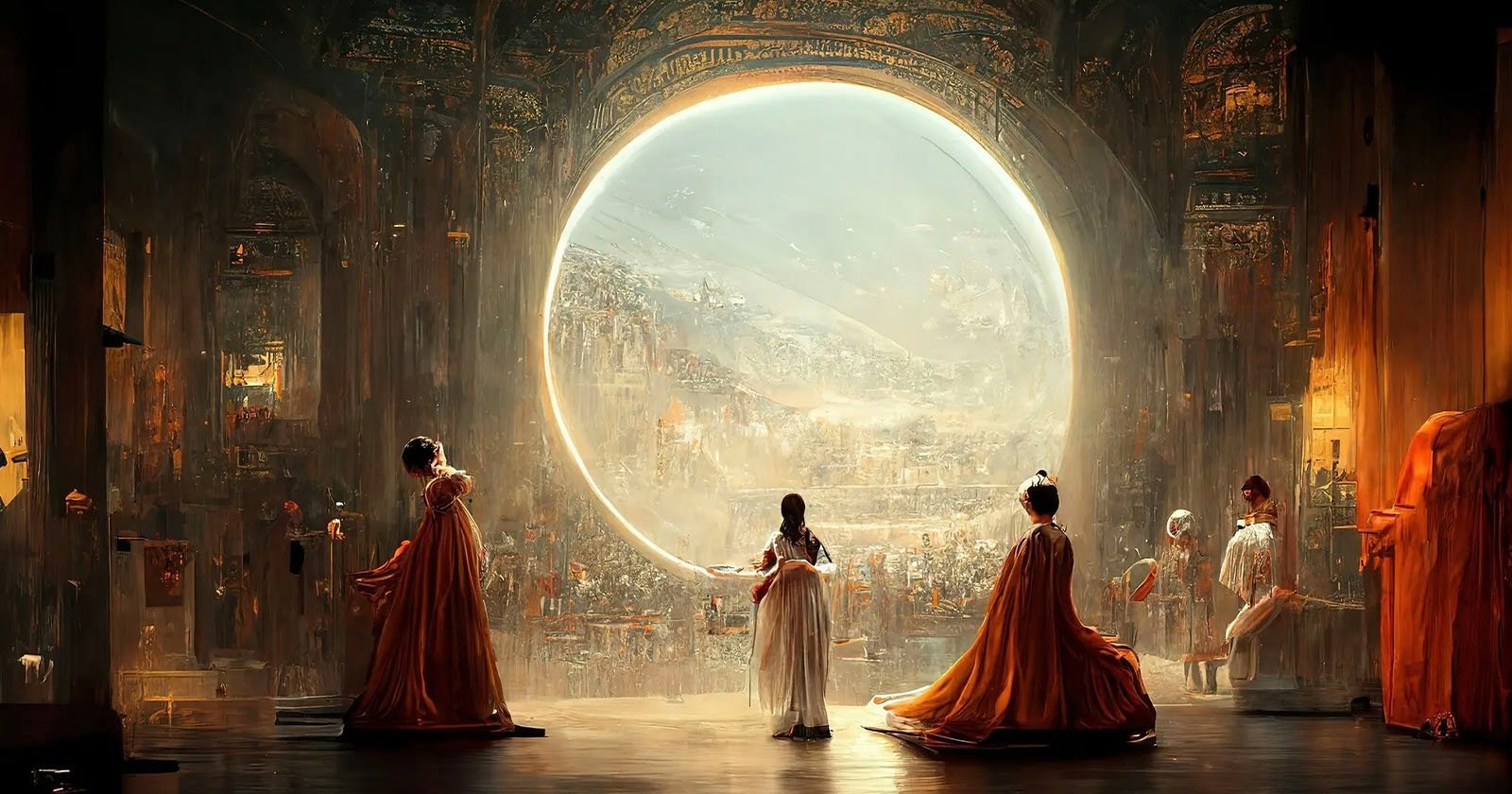An artist who infamously duped an art contest with an AI image is suing the U.S. Copyright Office over its refusal to register the image’s copyright.
In the lawsuit, Jason M. Allen asks a Colorado federal court to reverse the Copyright Office’s decision on his artwork Theatre D’opera Spatialbecause it was an expression of his creativity.
Reuters says the Copyright Office refused to comment on the case while Allen in a statement complains that the office’s decision “put me in a terrible position, with no recourse against others who are blatantly and repeatedly stealing my work.”



No, you can neither copyright a recipe nor the food or drink it produces.
Food and drink is only protected by trademark law. You are free to make a burger that tastes exactly like a Big Mac, you simply can’t call it a Big Mac.
And you can take a photo of some natural rock formations on black and white film stock, but you can’t take Ansel Adam’s photo of natural rock formations on black and white film stock. This is what the artist is suing for. He wants to claim ownership of his work, which I believe falls under copyright law, just like Ansel Adam’s photos.
Ansel Adams has a copyright because of the creative control he had over his photos, such as in lighting, perspective and framing.
Artists generally cannot copyright AI output because they do not have a comparable degree of creative control. Giving prompts to an AI is not sufficient.
Ok, I controlled the lighting, perspective and framing. Can I copyright now?
If this is an actual photograph, then you can copyright the lighting, perspective, and framing of the photo. Anyone can make an image with the same model though.
If this is AI generated and you directed the AI to change the lighting and perspective, then no you still can’t copyright any of it. Giving direction is not the same as having control.
Ok, lets do it with some of my actual work, then. One of these is the original photo I took, another is black and white, and the other has had some color added. When I took the original photo, I controlled everything about it. However, the edits were done in lightroom, where I asked the computer to change the color and to desaturate. I didn’t go in, pixel by pixel, and change things. I didn’t shoot on different film. I used a tool. Do I still own those photos? It seems like we are struggling over what is and isn’t a tool, and whether tool assisted art is still art.
In your edited photos, a judge can point to any part of the photo and ask, “In this particular part of the photo, why is there this particular hue?” And you can answer, “Because I desaturated it or I adjusted the tone curve or I snapped the photo when I saw that hue in the viewfinder”. There is no possibility that 100% desaturation can result in any color other than grayscale. There is no possibility that a desaturation slider will sharpen the image instead of desaturating it. You know what will happen every time you make an edit. That’s creative control.
In an AI generated photo, at some point the prompter will answer “Because that’s what the AI produced after my prompt, and I accepted the result”. In other words, in some parts of the image the prompter could not predict what the result of a prompt would be, but they approved of the result after the fact. It’s entirely possible that a prompter could get unexpected results from their prompt. That’s direction, not creative control.
Ok, but can you know how every bristle of a paintbrush will flow over a canvas? Can I know every hair on the head of the model and how they will be in the finished photo? Control is relative, and cannot be used as a measurement of art.
When someone throws paint at a canvas, is it still able to be copyrighted by them? They had no control over the paint as it landed, all they did was throw it. What if they didn’t even throw it? What if it were attached to a line and swung over the canvas? What if money-green paint were launched from a gun? Now the art becomes the message of the piece instead of the medium. Is it still copyrightable?
You’re basically arguing that you can’t copyright every hair on the head of your model. And you’re probably right!
Imagine I published a photo that was exactly like yours, except I edited the model’s hair color. Even though my image is not identical to yours, it has the same model, pose, lighting, framing, etc. These were all things that you intentionally controlled. You could argue on that basis that I violated your copyright.
Now imagine I published a photo with a different model, different lighting, different framing, different background, different everything except, by chance, the hair on my model’s cheek matched the hair on yours. If you admit that you didn’t even try to control that, you would have a much harder time proving I violated your copyright.
Likewise, suppose my painting of a flower vase contained a drop of paint splatter that by chance matched the fine texture of a drop on a Pollock painting. Pretty unlikely that would be a copyright violation.
To the extent that an artist gives up control of their work, they lose the ability to copyright it. The extreme case is the monkey selfie, where the artist (initially) admitted they had no control over the output and thus no basis for copyright.